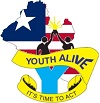
Owing to an upsurge in illicit drug abuse and addiction among the young people in Liberia, there is a great agony, given the health complications and other vices. Abuse of drugs such heroin, marijuana and cocaine have led to an escalation in crime and other health related problems such as spread of HIV/AIDS and Hepatitis, especially for the people who inject the drugs (PWID). It is estimated that 79 percent of Liberia’s population is comprised of young people between the ages of 15 and 36; and at least 85 percent of them are jobless due to lack of education and skills, which limits their chances of accessing social, economic and political opportunities. This pushes them into illegal practices such as crime, prostitution and drug abuse.
John (not his real name) one of our Peer Educators and project beneficiary, is a drug addict who shares his story and journey as a person who inject drugs. John, an electrician in Grand Bassa, one of the counties that Youth Alive Liberia is implementing the ‘Comprehensive key population community Targeted HIV services project, takes us through his life as a PWID and how the project is transforming his life and that of his family. He says,
“As a drug user, I know I have been risking my life and exposing myself to dangers of getting infected with HIV. When sharing the needle, I have been so exposed because I don’t know the status of my friends.”
He adds that he can’t remember when he started but it has been a long time and it is not something he would encourage other young people to do.
Limited job opportunities has led to many youths engaging in risky behaviors, including criminal activities and even prostitution for the girls. Drug addicts carry out criminal activities to facilitate their drug abuse lifestyle because they can’t live without it, which increases their risks of contracting HIV/AIDS. Not knowing their HIV status makes it even more risky as they may continue the spread unknowingly. Engaging them at different levels, helps to reduces addiction, as joins says…
“I didn’t have a job by the time I started injecting myself and using drugs; at least when I got some electrical training and started working as an electrician, life has been better, even though I’m still struggling with addiction.”
Some of the challenges that people like John face includes lack of shelter and poor health services, as he adds
“There are no quality health services for the people who inject drugs and limited awareness on the dangers of drug abuse through injection, which puts the people in too much risk especially HIV/AIDS”.
Asked if his life is changing, he says
“Yes, since I got involved in this project as a Peer Educator, I can say the change is like 75%. I can take care of my two children with the little stipend I get in this Peer Educator work.”
He says he is lucky that he hasn’t contracted any infection despite having shared syringes with his peers.
The three year project, funded by Global Fund through Plan International Liberia, focuses on increasing the numbers and percentage of key population’s access to HIV Prevention programs, with differentiated HIV testing services. The project is being implemented in four counties, Nimba, Bong, Grand Bassa and Margibi.
Illicit substance abuse has occurred for many years and seems to be increasing, especially among the young majority population. For people who inject drugs it is even worse as it increases incidences of blood-borne infections, including viral hepatitis, human immunodeficiency virus (HIV) and bacterial and fungal infections.
John appreciates the fact that being part of the project as a Peer Educator has built his capacity and also says he is able to reach to his peers with messages on HIV/AIDS prevention for the drug users and general public.
“Through the vigorous trainings, I have been empowered. I am able to reach out to our peers with HIV messages and also the use of condoms for prevention. I also encourage them not to share syringe because they may get infected”

The government has a role to safeguard its citizens from threats, which include drug abuse and illicit trafficking. But it is also the responsibility of ordinary citizens to support efforts to educate Liberian youth about the dangers of drug abuse. There is great need to create space for people who struggle with abuse and meet their needs, just like John.
Our drop in centers in Grand Bassa and Nimba have created an avenue for people like John to get information and referral for access to sexual reproductive health services. As a result, the young people continue to transform and adopt positive behavior.
